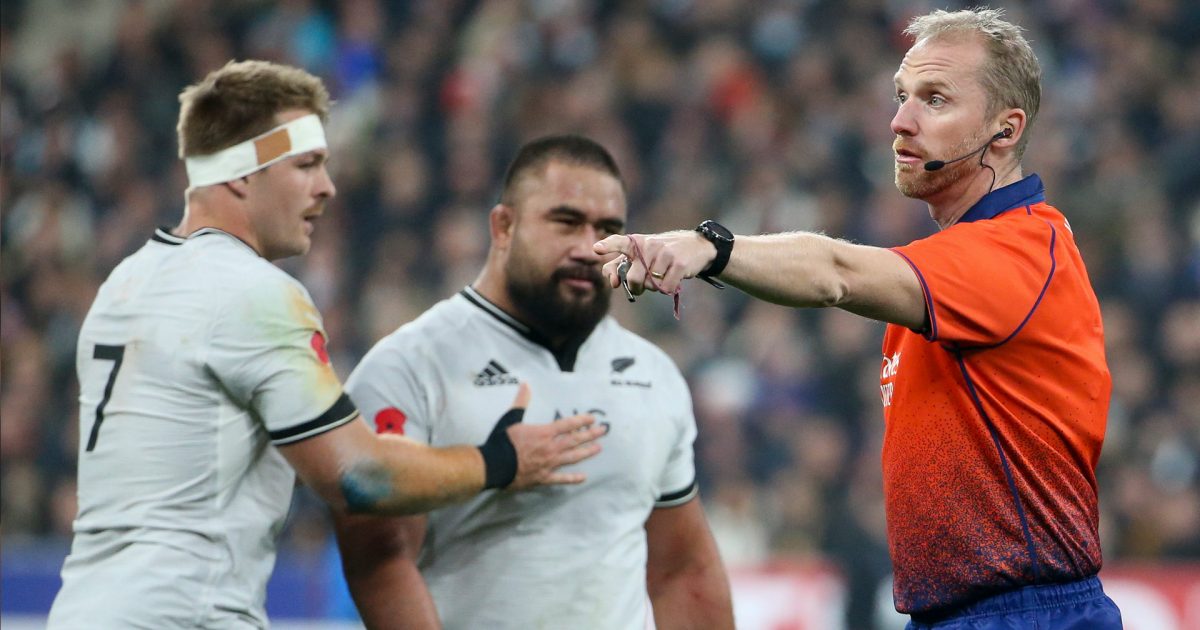Sam Cane says All Blacks need to fix 'two or three small things' to turnaround results

Recently re-signed All Black captain Sam Cane didn’t get much game time in 2021 as he battled to return from injury, playing in just three games on the end-of-year tour.
After returning to the All Blacks from the bench against USA, Cane earned his first start against Italy in an unconvincing team performance that was marred by errors as the Italians put the All Blacks under pressure.
After the All Blacks’ lost to Ireland, Cane was inserted back into the starting side for the clash against France, which ended with 40-25 defeat in Paris as New Zealand registered its second loss in a row.
Cane says the team has had time to digest the disappointing end to the tour, having scoured over the games in MIQ where they conducted team reviews over Zoom.
The national captain believes that wholesale changes aren’t required and fixing two or three “small things” will return the side to winning ways.
“When things don’t go as planned a couple of times, you feel like you need to break down every component and change lots of different things but often it is only two or three small tweaks which can make a big difference,” Cane told media at his re-signing announcement.
“While we were in MIQ there were a lot of zoom calls, meetings, reviews, and a lot of time to think as well. We felt like we turned over every rock and had every conversation we could have, between coaches, leadership meetings and player-driven stuff.”
Cane hopes the “hurtful” experience of 2021’s European tour, the first for the All Blacks in 2018, is a catalyst for getting the side where they want to be in 2023.
“Hopefully in two years’ time, when we are exactly where we want to be holding a World Cup, we can look back at this point and say it was one of the better things that happened for this group, even though it hurt at the time,” he said.
When asked to pinpoint what the team reviews revealed, Cane highlighted the game management issues that plagued the side during the final two tests where they couldn’t hold the ball for long phases, and getting “drilled” behind the gain line.
“If one of us makes an error each game, all of a sudden that is 15 errors. We can all be better at minimising those … and we had a chat around game-management, particularly after the Ireland loss.”
“We are still up there with the best in the world when we get front-foot ball. It only needs to be two or three quick phases and we have got guys who can exploit that. But when we get drilled behind the gain line, we become like every other team and have to resort to contestable kicks, or kicks not on our terms.
“So it is about making small tweaks to our attack structure. We have identified we need to be better at creating two or three rucks of quick go-forward ball.”
One of the only tactics that seemed to work for the All Blacks was abandoning the wide, expansive phase play and taking a narrow-minded approach of pick-and-goes through the forwards.
The strategy worked to lay a platform for Jordie Barrett’s try in the second half comeback against France, by sucking in the defence first before Aaron Smith saw an opportunity back on the short side.
“We almost surprised ourselves how well we went with our pick-and-goes, considering it is not traditionally how we play,” Cane said.
“We had a lot of time to think and hopefully we came up with some good stuff. The boys have a good relationship with [Foster] that allows us to have honest conversations without fear of putting ourselves in jeopardy. He is outstanding at taking emotion out of things.”



























































